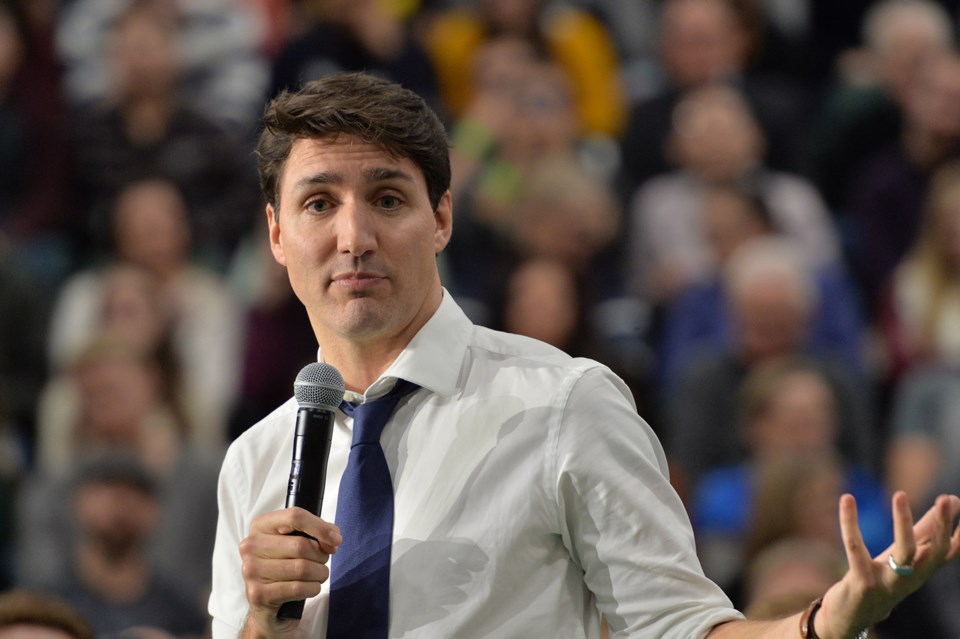I know only too well from personal experience the power of a political apology.
Nine years ago, a blanket mea culpa from the Vancouver mayor for going too slow on some things, too fast on others, rebooted his struggling campaign in the final days before the vote. The small lead I held in our day-by-day polling evaporated as the public accepted the mayor’s contrition. Experts credit that gesture with his return to power.
This week I’ve seen three remarkable political apologies by the Ontario premier, by the Commons speaker as he left office, and by the prime minister. I am still scratching my head at one of them.
I can understand why Doug Ford reversed course on the hairbrained scheme to develop the Greenbelt tract north of Toronto. Ontario hardly lacks land to develop but needs to wisely preserve space as it populates, and this sudden hatching of a money-grab was nothing short of stupid from the outset. It has cost ministers and aides their jobs and may yet capsize the Ford administration at election time, but his apology was thorough in falling on the sword and accepting responsibility as the blunderer-in-chief.
Anthony Rota’s blunder, of course, seems to have cost Canada yet more demerit points on the road our country seems to be taking to international disdain. If there is one descriptor on a CV that might disqualify someone from accepting recognition and applause from MPs as the Ukrainian president takes a moment from dodging bombs to visit Ottawa, it would be along the lines of “former Nazi SS unit.”
Yet there Yaroslav Hunka was, all 98 years of him in the Commons gallery, presumably beaming with pride as someone who, as Rota put it, “fought the Russians,” only at the most inappropriate juncture in the last century.
Rota, or his staff, didn’t appear to check on the particulars of Hunka’s military stint. Nor, given their ferocious clapping, did it seem any of the 338 MPs possess immediate scholastic recall on world history. It took a little time to set in, but eventually everyone was piling on to call for Rota’s resignation. After a day or so it was gearing up to be the opposite of that ceremonial hauling of an MP to assume the Speaker’s role, with Rota being dragged from the chair and not to it.
It became a national, even international, convenience to join that fray, even if Hunka is not by his resume defined in Canada as a war criminal. He was just plainly the wrong person to pick among the 1.5 million Canadians of Ukrainian descent on that day of respect and support for Volodymyr Zelensky, and even the Russians knew that.
Rota wiggled a bit too long before departing the job of neutral guidance of the partisans, but when it was apparent he’d lost the room, he vanished from it.
A most curious dilemma then faced the prime minister, and he didn’t let us down in our expectation of his letting us down.
Sure, Rota reports to Parliament and not the Prime Minister’s Office. Sure, Rota didn’t smell-test with the PMO the invitation of Hunka to the Commons. Sure, Rota apologized not once but twice to parliamentarians and the public.
But when he spoke this week about the debacle, Trudeau distanced himself in a most ungracious and selfish way from any personal obligation to serve as a representative of this mistake.
Leaders don’t memorize the bus schedule to throw you under it, as Trudeau did Rota. They don’t have the right to select the successes to crow about on the world stage if they don’t also bear the burden of agency for significant failures on it.
Trudeau has a relatively solid history of apologizing for the country’s sorrowful chapters: the turning away of the Komagata Maru and MS St. Louis ships, the internment of Italian Canadians in World War II, and the systemic discrimination against LGBTQ Canadians. These apologies aimed to build trust, and of course they can be politically helpful, as I learned nine years ago.
But his placing blame squarely on Rota suggests a miserly and conditional responsibility for taking on the task of owning what happens on one’s watch as a national leader we have seen only too eager, too often, to gain global attention. It seeks to be absolved of accountability on a higher plane, rather than properly accepting a share of liability.
Kirk LaPointe is publisher and executive editor of Business in Vancouver and vice-president, editorial, of Glacier Media.

